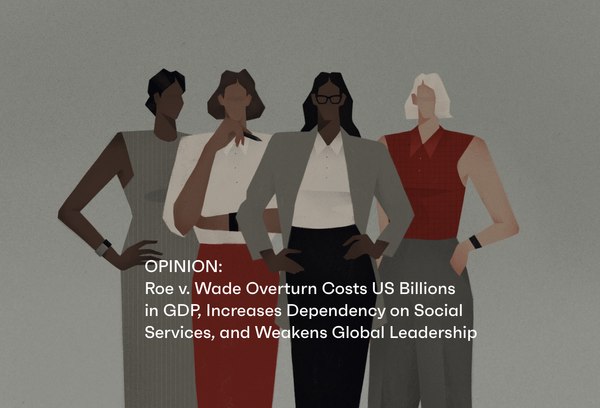The case for promoting diversity, equity & inclusion (DEI) in the workplace is self-evident. DEI creates a sense of belonging among employees and can also curb workplace burnout and stress. These benefits lead to lower turnover rates and more effective hiring. Consider that 70% of prospective applicants report that diversity is an essential factor when taking a job, and as Gen Z enters the workforce, this stat is likely to increase.
But promoting DEI is more complex than creating a hiring task force or an employee resource group (ERG). These are vital initiatives, but leaders should also understand the importance of inclusive offerings that positively alter employees’ perceptions of their workplace culture. A highly relevant and robust example of this comes in the form of family-building benefits, which can significantly improve an employee’s quality of life — especially diverse employees like LGBTQ+ parents, trans individuals, and people of color.
DEI initiatives are becoming a higher priority in our working world, not just for the HR team. Forward-thinking leaders in all departments acknowledge diversity's importance and are beginning to advocate for change. In fact, seven in ten employers plan to promote the DEI-related aspects of their benefits programs shortly, according to industry research. This stat demonstrates that DEI is no longer treated as a buzzword, but rather, a mission-imperative.
At Stork Club, we’re excited by this change because DEI is in our DNA. We designed our solutions with inclusivity in mind, which shows in our clinical outcomes. Here is why it matters and how we do it.
Prioritizing a diverse team
We know diverse teams lead to better outcomes, both financially and innovatively speaking. And since our solution is inherently inclusive, creating a representative team was our priority from the outset. Nearly three-fourths (70%) of Stork Club care navigators identify as LGBTQ+, and 30% of doulas in our network are Black, Indigenous, or people of color (BIPOC). Furthermore, our hiring managers continue to treat workplace diversity as paramount.
Diversity is crucial in the workplace because it affects every decision we make. The more diverse persons we include in meaningful conversations, the more nuanced touchpoints and perspectives we can embrace during the design process. Hiring people with different backgrounds allows us to create offerings that actually help our target users — many of who share a similar experience.
Following human-centered design principles
Creating products without a market — or, in other words, without humans who need the product — is a common design flaw. That is why human-centered design principles guide our development process from start to finish. To ensure we're creating a relevant product, we develop personas that go beyond demographics or the clinical end goal of an employee (i.e., pregnancy). Instead of treating possible patients as a number, we consider the importance of every touchpoint they'll have during their clinical journey — from the motivation behind their decision to use Stork Club's offerings to how they'll feel during the process. Our goal is to bring joy back to the pregnancy and birthing experiences.
Human-centered design helps the Stork Club team keep laser-focused on DEI. For instance, this method of thinking encourages us to consider racial disparities in maternal healthcare. Compared to white women in the U.S., Black women are three to four times more likely to die from a pregnancy-related complication and twice as likely to experience severe maternal morbidity. We take the responsibility of helping to mend this gap seriously, which is why we incorporate fertility benefits that include resources and providers proven to improve outcomes for BIPOC expectant mothers.
Similarly, Stork Club supports various pursuits of parenthood. In addition to covering fertility treatment (irrespective of an infertility diagnosis), our offerings support other family-forming journeys, including adoption and surrogacy. Our approach to design has encouraged us to provide comprehensive family-building coverage, even — and especially when — the importance of that care may be unknown to the patient. For example, trans individuals are often uninformed that they could benefit from fertility preservation before starting hormonal treatment as part of gender-affirming care.
At the heart of Stork Club's offerings — and our approach to design — is the desire to provide inclusive care for all individuals, particularly those who may have previously had poor healthcare experiences. Many LGBTQ+ individuals have reported visiting a medical professional unfamiliar with trans health outcomes. To prevent this occurrence in our network, we vet all partner clinics and agencies to ensure they can provide a life-affirming experience.
Considering the impact of income diversity
Last but not least, we carefully consider income diversity, which is less frequently discussed in the context of DEI. However, it remains an essential part of any inclusive benefits plan. Most Americans don't have thousands of dollars in savings to cover the bill for a medical emergency, so benefits that include a deductible or require members to wait for reimbursement create a significant cost barrier. We also realize the importance of accessible services like telehealth, a quick and inexpensive way for a patient to address immediate needs. At Stork Club, access to critical reproductive healthcare is a basic human right. Join us on the mission to make reproductive care available for all.
See a firsthand demo of how Stork Club can be easily implemented for your employees and their families.
Each week Stork Club tackles industry insights on fertility, workplace inclusion & DEI initiatives.
If you’re not a subscriber, here’s what you missed this month:
- Stork Club fully offsets carbon emissions
- How to close gaps in family-building care for your black employees
- Building a family-building platform accessible for individuals with disabilities





